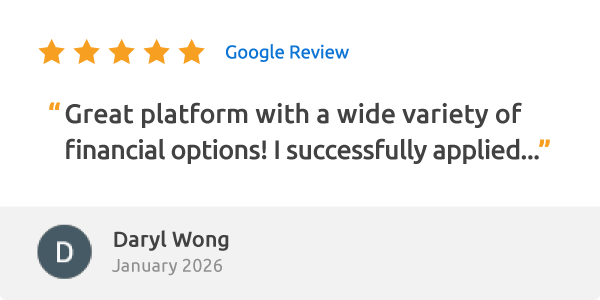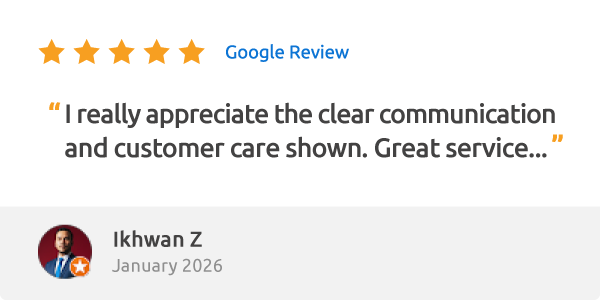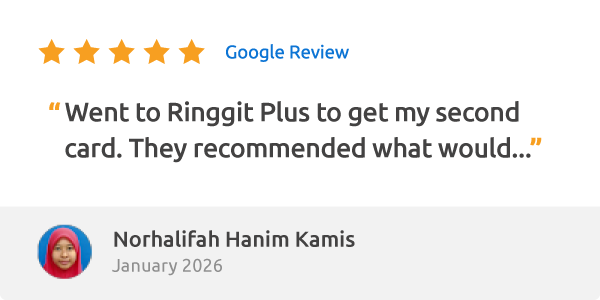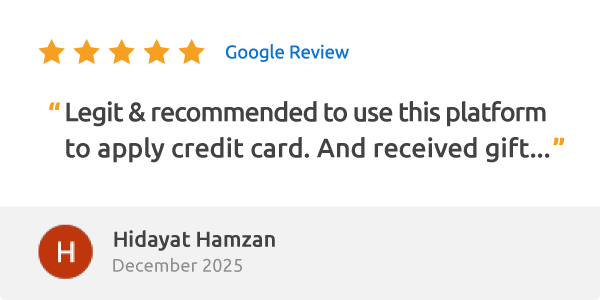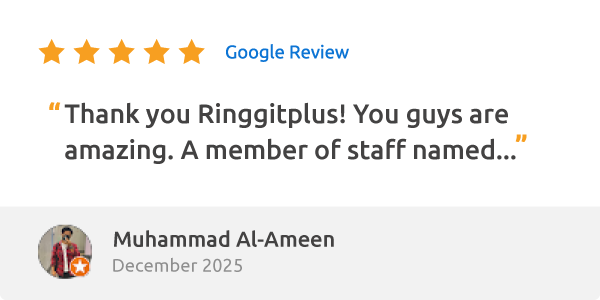Personal loans are often seen as a solution when struggling with financial problems because they provide a large amount of money within a relatively short period.
However, not all situations are suitable for using personal loans, as it depends on various factors such as debt burden, credit score, and others. Many individuals apply for personal loans without first researching their situation and its impact on their finances.
Don't worry, if you're experiencing this situation, this article is for you! We'll help you understand your financial situation before you can make choices in determining the best time to take out a personal loan.
What Is a Personal Loan?
A personal loan is a form of financial facility where you apply for a sum of money, usually in the four-figure range and above, from a bank or lending institution.
To enable you to obtain that money, the bank will investigate your financial background first before approving.
Some banks or lending institutions can approve loan applications within a relatively short period, as fast as one day! It’s no wonder that personal loans are seen as so popular, especially for those in situations requiring finances quickly.
Additionally, most personal loans don't require collateral or guarantors to enable them to apply and obtain bank approval easily.
Personal loans also come in various types according to your situation, including:
- Fast approval personal loans
- Low-interest-rate personal loans
- Shariah-compliant personal loans
- Personal loans for civil servants
- Personal loans for low-income individuals
Personal loans charge interest rates at certain percentages according to the loan period and amount borrowed. And each month, you need to make loan repayments on time to avoid paying Late Payment Fees and being charged higher interest rates.
What Types of Situations Make Personal Loans the Best Choice for Me?
Here are situations where you're suitable to take personal loans:
Facing Emergency Situations
Emergencies can occur unexpectedly. For example, needing to cover hospital treatment costs and medications, being involved in accidents and requiring money to repair vehicles, or needing to repair homes due to quite critical damage.
This situation will cause you to need quite a lot of money, and you'll likely feel burdened and anxious because you don't have sufficient money to cover certain costs.
So this is the best time to apply for a personal loan!
Want to Make Large Purchases
If you want to make large purchases with high costs, such as electronic goods and gadgets needed for daily life, personal loans are one of the best choices.
Large purchases paid immediately can avoid interest rates, any fees, or penalties charged.
Covering Education Costs
Personal loans can be used to ease the burden of paying tuition fees at universities both domestically and abroad.
Moreover, these loans can also benefit your career advancement by enabling you to join courses that can strengthen skills or knowledge related to your career.
If you're more towards needing financial facilities for education, this is a suitable time to take a personal loan.
Want to Settle Debts Quickly
Many debts, including credit cards and other loans, are indeed quite burdensome. By doing debt consolidation loans, it's easier because all debts are combined and you only need to pay to one party.
This debt consolidation indirectly prevents you from facing the risk of late payments and being charged higher interest rates.
For those who want to settle debts faster through debt consolidation, personal loans are one of the solutions!
Want to Build a Credit Score
If you previously had no instalment loans and only used credit cards, taking a personal loan with a low amount can help increase your credit score. Importantly, loan repayments are made on time every month!
How Do I Know If Personal Loans Aren't the Right Choice for Me?
Here are some situations that indicate you're not suitable to apply for personal loans:
No Stable Monthly Income
If your income is still unstable and you don't have sufficient savings to repay loans, it means personal loans aren't a suitable financial choice for you.
Personal loan repayments are very important, especially when there's already a payment schedule set by the bank. Moreover, if you're late making payments, penalty fees will be charged, and it will increase your debt burden further.
Used to Buy Non-Essential Items
If you intend to make personal loans merely to get the latest mobile phones, want to shop and holiday with a luxurious lifestyle without worrying about finances, personal loans aren't the right choice.
Personal loans are not encouraged for such purposes because they risk making you accumulate more debt in the future.
What if the habit of spending recklessly continues every month and becomes more 'addictive'? It will only make you more negligent in controlling finances until you're possibly burdened with a lot of debt.
Following Current Trends
The habit of being easily influenced is very dangerous, especially among young people who easily follow current trends and peer pressure.
Undeniably, some parties make decisions because their acquaintances give encouraging reactions to something even though it's not good for them.
If you only want to take personal loans just because your friend said, 'easy approval, just take it' – beware!
Use for High-Risk Investments
If you want to apply for personal loans to be used in high-risk investments such as get-rich-quick schemes and crypto, it's better to avoid them. This is because most high-risk investments don't provide any return guarantees.
Moreover, you might face big losses because there are no returns on investments, plus you need to repay the personal loans taken.
Want to Use for Daily Needs
If you plan to use loan money to cover daily life, it's better to avoid it because what will happen when you no longer have loan money? Will you need to apply for new personal loans to buy kitchen items, pay house bills, and so forth?
Personal loans shouldn't be made the main financial source in daily life because they should be used from your monthly income sources.
How Do I Know Whether We Can Afford to Repay Loans or Not?
Before you apply for any personal loans, check first whether you can afford to repay those loans through several ways:
Use Personal Loan Calculator
Personal loan calculators are facilities that can help you calculate and determine monthly payment amounts, interest rates throughout the loan period, and overall loan costs, including interest.
With personal loan calculators, you can plan your finances monthly or compare several loan offers before making decisions to apply for any personal loans.
Information needed if you want to use personal loan calculators includes:
- Loan amount
- Interest rate (APR)
- Loan period
Calculate Your Total Debts
List all commitments that need to be paid monthly, including credit cards, home loans, car loans, house bills, and others, to enable you to assess existing commitments yourself and determine whether you can afford to repay personal loans if you plan to take them.
Understand Debt Service Ratio
Debt Service Ratio (DSR) is a measure to determine the percentage of your monthly income used to pay all monthly debt commitments.
Moreover, some banks in Malaysia also use it as a benchmark to determine someone's loan eligibility. According to PIDM, the best DSR is below 40%.
If this DSR shows your monthly income is more used to pay debts, it can be a sign that you're less suitable to take personal loans to avoid more accumulated debt burdens.
Discuss with Financial Advisers
If you're still stuck in financial management, you can also discuss with financial advisers to assess your financial level. Financial advisers in Malaysia include:
- Credit Counseling and Debt Management Agency (AKPK)
- Independent and licensed financial advisers under Securities Commission Malaysia (SC) and/or Bank Negara Malaysia (BNM)
- Banks or financial institutions
But before you plan to meet any financial advisers, check first their qualifications and licences, and whether there are any charges imposed or not.
Checklist Before You Decide to Take Personal Loans
Here are some questions you need to ask yourself to assess whether you're truly eligible and suitable to take personal loans:
Do I Really Need This Loan Money?
If you truly need money for things like medical emergencies, critical home repairs, or debt consolidation with high interest rates, perhaps personal loans are a reasonable choice for you.
But if it will be used to buy luxury items, travel, or cover lifestyles beyond capability, you're not encouraged to take personal loans.
Can I Afford to Repay This Personal Loan?
You need to recheck your monthly income, whether it's a stable income or not. If yes, you need to recheck all commitments to be paid and assess whether you have sufficient money that month to pay personal loan repayment commitments (if you intend to take them).
Preferably, check first the Debt-Service-Ratio (DSR) to measure the percentage of your monthly income used to pay debts.
Are There Other Options I Can Take Besides Personal Loans?
If you don't want to take personal loans, there are several other options for you to get money loans, such as:
- Using credit cards with 0% instalments (Buy Now, Pay Later)
- Making loans with Cooperatives (for civil servants)
- Using EPF savings money in Account 2
Do I Already Understand and Check Interest Rates and Hidden Fees in Personal Loans?
You need to check annual interest rates (APR) charged by lenders and ensure whether those rates are fixed or variable. Additionally, you need to identify any hidden fees such as processing fees, late payment penalty charges, early termination fees, and insurance that might be charged automatically. With this information, you won't be surprised if you need to make personal loan repayments more than expected.
Frequently Asked Questions About Personal Loans in Malaysia
Can I apply for personal loans if I'm already blacklisted?
If you're already blacklisted either by CTOS, CCRIS, or legal action, you can still apply for personal loans, but chances for approval are low, especially from banks.
What age is eligible to apply for personal loans?
Most banks set 21 years as the minimum age to apply for personal loans. But some banks also allow individuals as early as 18 years to make applications.
What's the personal loan limit I can get?
The personal loan amount you're eligible to apply for in Malaysia depends on several factors and conditions set by financial institutions, such as monthly income, credit record, and debt service ratio (DSR).
Can I use someone else's name to apply for personal loans if my name is already blacklisted?
No, you cannot use someone else's name for the purpose of applying for personal loans because it violates the law under the Penal Code Act (Section 420 - fraud).
What are the risks if I fail to pay personal loans?
If ignored, this can damage your credit score, get your name blacklisted, make future loan approvals difficult, expose you to legal action, and even lead to bankruptcy.


